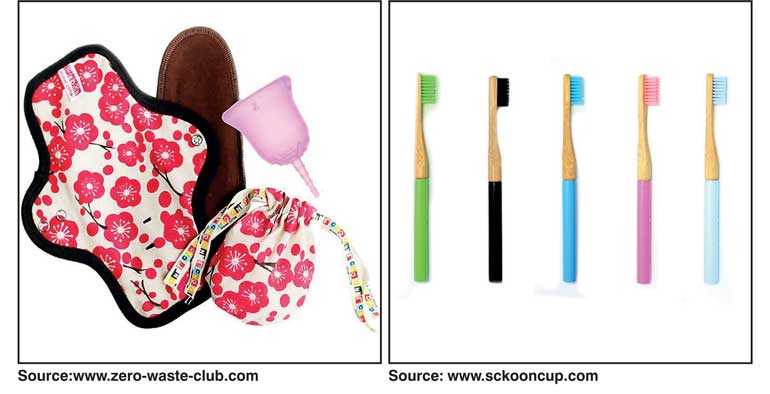Sunday Feb 22, 2026
Sunday Feb 22, 2026
Thursday, 1 November 2018 00:00 - - {{hitsCtrl.values.hits}}

When we talk about reduction of waste we talk about at least 3 Rs, Refuse, Reduce and Recycle. In addition various concepts have come up including a number of additional Rs such as Re-use, Repair, Re-gift, Recover, Rethink and so on.
Many waste efforts only focus on recycling and highlight it as the important step towards less waste. However, most importantly we have to refuse! Only by refusing certain products demand for such products will be less and hence production of these products will decrease.
Consumers have significant influence on such products which are not necessary for survival. Single use plastic items for example are not a necessity for humans, they are used because they are offered for free combined with foods or shopping experiences. All those other items which we really wish to have and might need as well, we can reduce to a certain extent, and other items will end up in recycling machines, and hopefully not in landfill and waterways. Sad truth is, that the majority of waste is still not refused, reduced, or recycled at all. 
Many voiced concerns once plastic bans came up, that businesses will suffer because there are no alternatives available. Naturally it is important to have alternatives at hand for a consumer to decide which product to use and for businesses to venture in as well. The feel is however that motivation to change and really take on the challenge of 0-waste for a country is still not the top priority of many nations.
It is great and encouraging to see now in Sri Lanka that various small entrepreneurs have come up with ideas of alternatives for plastic items. Especially in the past months a number of small businesses started to offer items such as for example bamboo and steel straws, bamboo tooth brushes, plant based plates and cups, fashionable glass drinking bottles for offices, reusable bags, biodegradable bags, reusable bags for fruits and veg as well as legumes to be weight at grocery stores, reusable sanitary napkins and menstruation cups.
Out of this list I would like to highlight the last item especially. Each year 45 billion sanitary pads and tampons are used and discarded globally. Most of them end up in landfills where they need more than 500 years to degrade.
In poor parts of the world women still use cloth pads during their menstruation days, however “modern” women or whoever can afford tends to buy commercial sanitary pads and tampons, single use so it gives a feeling of freshness and cleanliness – that’s how it is advertised. The environmental damage is substantial!
Therefore it is even more encouraging to see that the trend now is to rethink and use reusable pads as well as menstruation cups, which are available in all sorts of sizes, colours and types. In Sri Lanka these products are available since sometimes and it is thanks to some innovative women to advertise and promote them across the island.
Where it might be easier to promote bamboo straws and plates it is much harder to promote menstruation cups in a country where in some areas women’s monthly period might be still a controversial or stigmatised topic.
Some short while ago we discussed on how to deal with the plastic ban, here we already have groups of people and companies who dedicated themselves to this challenge and brought up products which are sustainable and can very well help us refuse single use plastic items.
As Sean Connery said one time: “There is nothing like a challenge to bring out the best in man.” We have the challenge and we bring the solutions! Well done Sri Lanka!